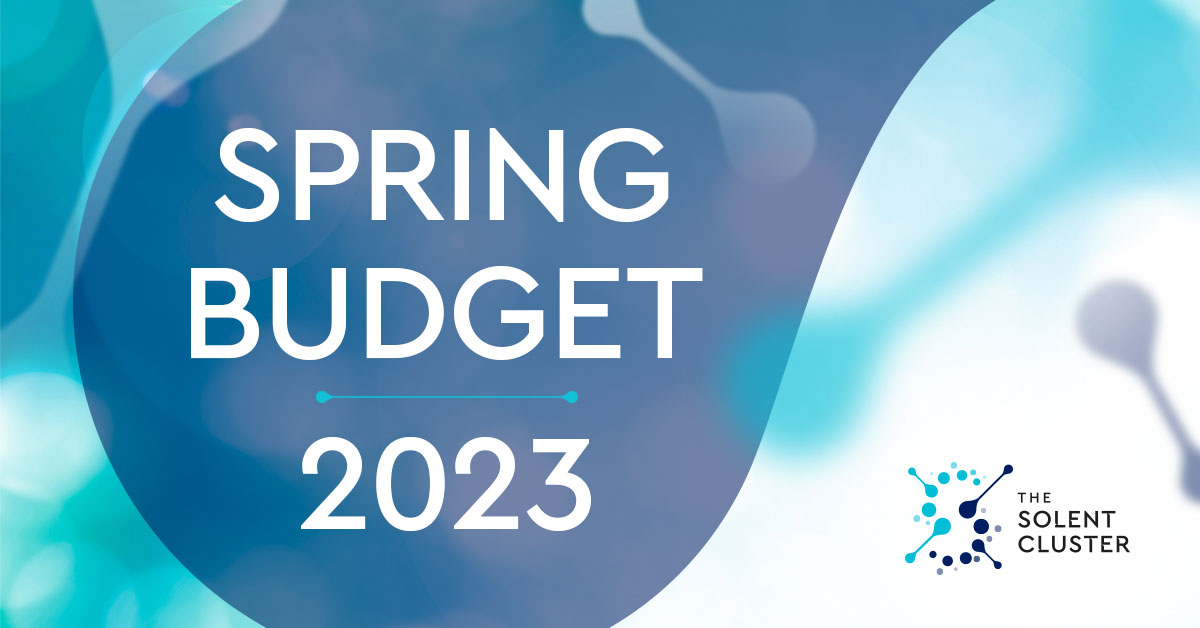The Solent Cluster has welcomed the Chancellor’s announcement of an investment of £20bn into UK carbon capture and storage (CCS) as part of a Clean Energy Reset, as it seeks to realise the government’s Net Zero Strategy ambitions.
In this Wednesday’s Spring Budget (15 March), the Chancellor, Jeremy Hunt, has set out £20bn investment over the next 20 years in domestic carbon capture and low carbon energy with an aim to store 20-30 million tonnes of CO2 a year by 2030 This will be used to drive forward projects like The Solent Cluster, which is developing a project that has the potential to capture up to 10 million tonnes of CO2 a year, the equivalent to taking 3.75 million cars off the road and a third of the government’s target.
The Solent Cluster is a cross-sector collaboration of international organisations, including manufacturers and engineering companies, regional businesses and industries, leading logistics and infrastructure operators and academic institutions, with decades of proven expertise in carbon capture and storage and hydrogen technology. It aims to grow the regional economy, protect skilled jobs, and create new employment opportunities in the energy technologies and industries of tomorrow.
Anne-Marie Mountifield, director of The Solent Cluster and chief executive of Cluster founding member The Solent Local Enterprise Partnership, said:
“The Solent Cluster team is pleased with the Chancellor’s announcement in Wednesday’s budget and as we have the potential to capture and store a third of the government’s annual ambitions for CCS, the impact of this for the Solent region and beyond is significant. It will make a large contribution to attracting significant investment into levelling up the Solent region, as well as creating new jobs and growth.”
Forty percent of all industrial CO2 ever captured has been successfully captured by one of the Cluster’s founding members ExxonMobil. The Cluster is actively developing its own CCS solution, drawing on the global expertise of ExxonMobil at its site in Fawley, Hampshire.
Anne-Marie continued: “Through new hydrogen production facilities, the Solent can lead the way in creating low-carbon fuels for the maritime industries, on which much of our region’s economic prosperity depends.
“We are currently awaiting the announcement of Track-2 cluster funding from the government as it works towards its requirement of reaching net zero emissions by 2050. This will enable us to deploy our decarbonisation plans which, as well as offering the prospect of lower carbon energy for homes, businesses, public buildings and transport, will also help decarbonise industries in and beyond the Solent region by capturing, processing and storing their emissions.
Government expects that support for Track-2 clusters may include access to capital support through the CCS Infrastructure Fund and Net Zero Hydrogen Fund, and revenue support mechanisms through technology-specific business models.
Chancellor of the Exchequer, Jeremy Hunt, said:
“Without government support, the average household energy bill would have hit almost £4,300 this year, which is why we stepped in to save a typical household £1,300 on their energy bills this winter.
“We don’t want to see high bills like this again, it’s time for a clean energy reset. That is why we are fully committing to nuclear power in the UK, backing a new generation of small modular reactors, and investing tens of billions in clean energy through carbon capture.
“This plan will help drive energy bills down for households across the country and improve our energy security whilst delivering on one of our five promises to grow the economy.”
Since its launch in November 2022, The Solent Cluster, which is the only project of its kind in the region, has welcomed over 55 members.
